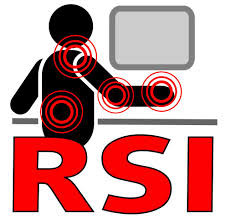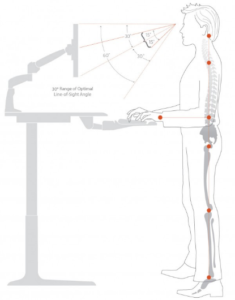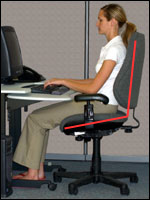We don’t think about simple, everyday repetitive, small-amplitude, movements as producing strain. Many times, we don’t realize that seemingly disparate activities are using the same muscle groups and adding to the “strain.” Pain is the body’s way of telling us that tissue injury is occurring. Pay attention to that signal—even if it occurs only transiently. […]
The Power of Partnership
Our founding partner, Richard Shrout mentioned the other day that we are still unique in our business model, which has endured since 2006. Our collegial partnership of book indexers, taxonomists, and editors has served us very well over the years. This is a good time to go over the workings of this little group of […]
Repetitive Stress/Strain Injury
Being sedentary is not the only work hazard for those of us spending hours working at our computers. Musculoskeletal diseases involving muscle, tendon, ligament, and nervous system injuries are caused by repetitive tasks—like keyboard use. Carpal tunnel syndrome (CTS) is often given as an example of this kind of musculoskeletal injury but other aches and […]
Work Positions: Sit/Stand Desk
The negative health effects of constant sitting are now well-established, and we freelance publishing folks have a lot of computer time in our days. And given the findings from some NASA studies that the effects of gravity and lower body movement are important in counteracting the effects of sitting disease, standing desks have become popular. […]
Alternative seated positions
While the upright seated position (90-degree) seems to be the most commonly recommended (and used) position, it may not be the most healthy. Some very sophisticated studies using MRI imaging and stress measurement in the spine suggest that 135-degree thigh/torso position may be optimal for circulation, joint comfort, and weight distribution. In the declined position the […]
Tracking Process, not Just Progress
John Steinbeck famously kept a diary of his writing process, a practice familiar to many writers, including novelist Sue Grafton and memoirist Louise deSalvo. These diaries, which deSalvo calls “process journals” serve to chronicle only the process of writing, not the rest of life, and often one single writing project at a time. Grafton opened […]








